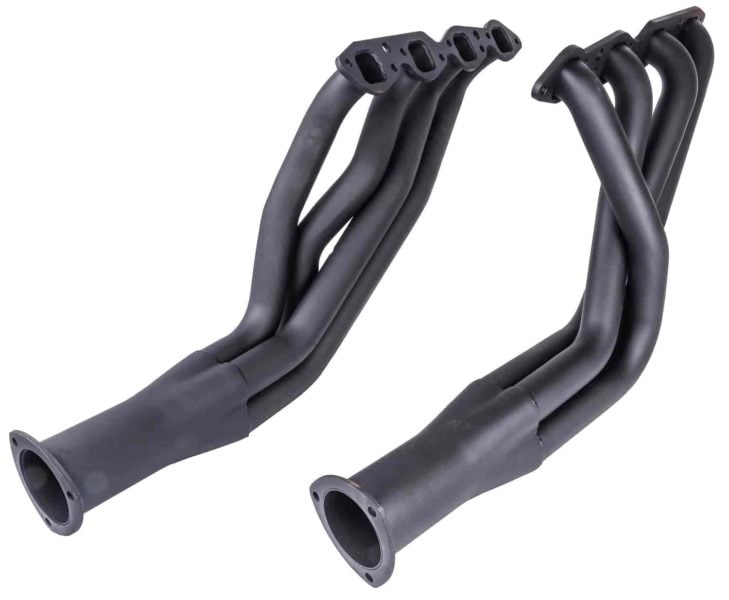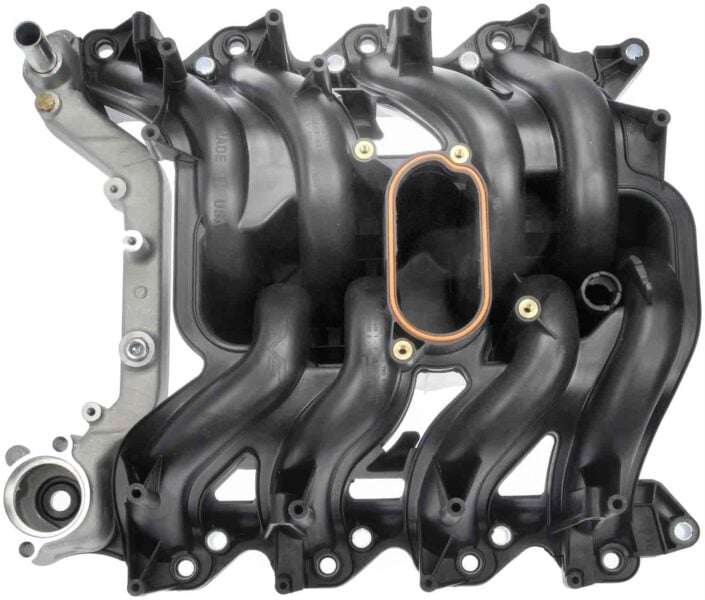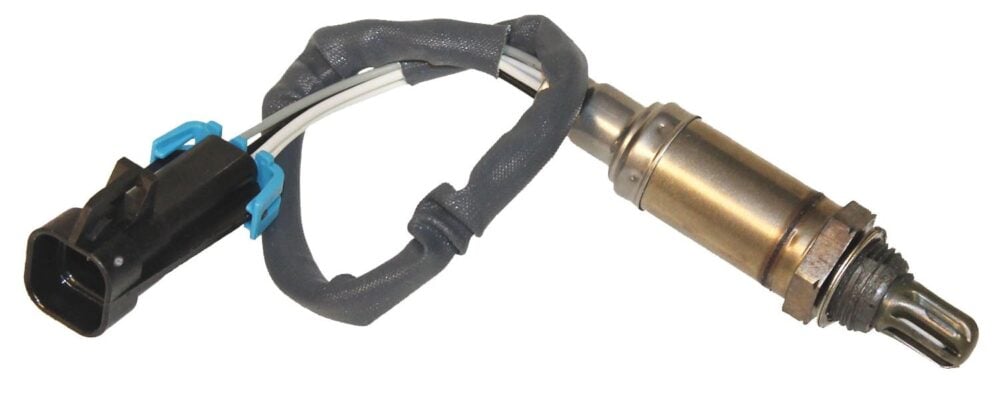
Whether it's a classic 70s model with the 302 V8 or a fresh-off-the-lot unit with the latest EcoBoost, you need to put the right type of motor oil in your Ford F150.
Oil is a must-have for any internal combustion vehicle, lubricating the engine's moving parts to keep friction at bay. Put the wrong type of oil in your F150, and you may negatively impact its performance, fuel efficiency, and even longevity.
When choosing the right oil for your F-150, there are three main types to consider: conventional, synthetic blend, and full synthetic. You’ll also need to decide on your oil’s viscosity, meaning how thick it is and how easily it flows.
This article further details choosing the right oil for your F150. We'll cover each oil type, what Ford recommends, and what is ultimately best oil for F150 vehicles and their needs. We'll also review how often you should change your oil.
But first, let's touch more on why choosing the right Ford F150 oil type is so important.
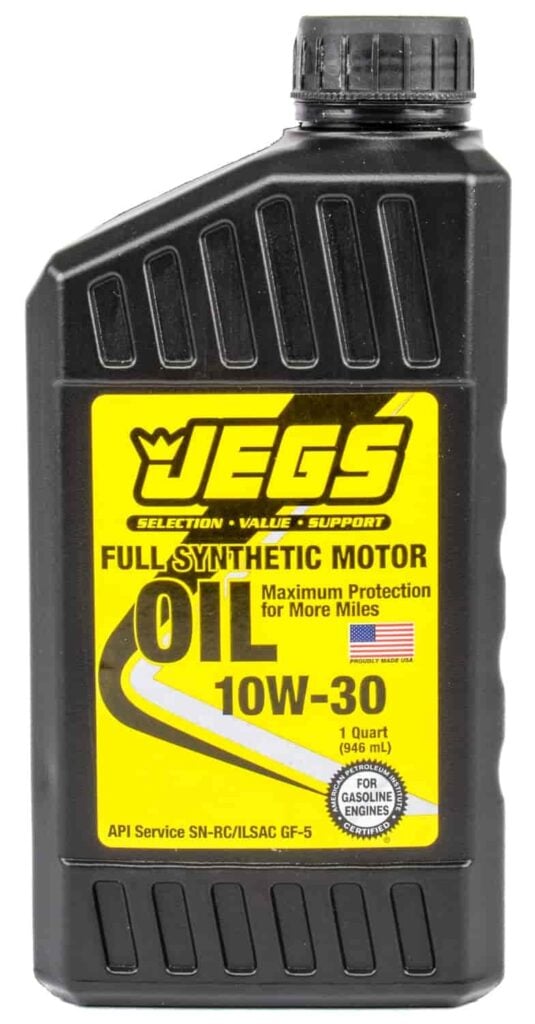
Why Oil Type Matters
Impact on Engine Performance
Motor oil manages engine temperature by absorbing and dispersing heat from friction. Choosing an oil that’s not up to par can cause the engine to run hotter. If the cooling system can't keep up with the increased heat, you may run into serious issues like a cracked block or blown head gasket.
Conventional oil, derived from crude oil, offers good lubrication for most engines, reducing friction and wear. Yet, it can break down faster under tough conditions, like pulling a heavy trailer up a steep grade or attempting your quickest lap time, possibly causing your engine to overheat.
In contrast, synthetic oils are chemically designed for resilience, retaining their protective qualities even under extreme conditions. They offer consistent performance and pair especially well with newer F150 models with smaller, turbocharged EcoBoost engines running at high temps.
Just note that while the smaller molecules of synthetic oils do improve flow within the engine, they're also more likely to leak in older F150 models with worn gaskets.
And then there's synthetic blend oil, which, as the name suggests, is a blend of conventional and synthetic oils. It provides a balance of the protective qualities of synthetic oil while costing closer to conventional oil.
Speaking of cost, synthetic oil is typically the priciest due to its top-tier performance and longevity, averaging roughly $35 to $65 for a five-quart jug. A synthetic blend oil should come in closer to $25 to $50 for the same amount, while conventional oil should run from $20 to $35 per five quarts.
Note that specialty oils catering to high-performance or racing vehicles typically cost a bit more than the above ranges.
Longevity of the Engine
The Ford F150 oil type you choose also plays a crucial role in the longevity of your truck, no matter its age. Engines, particularly older ones, are subject to wear and tear over time. This wear often presents as micro-abrasions on the engine's metal components, increasing friction and, consequently, heat buildup.
Motor oil helps create a protective barrier between engine parts, minimizing metal-to-metal contact and reducing wear. Conventional oils, however, are prone to breakdown over time, diminishing their lubricating efficiency and accelerating engine wear.
In contrast, synthetic oils are designed to resist high heat and degradation. They preserve their viscosity longer under high temperatures, maintaining a protective layer between engine parts. This quality can extend engine life, even in older F150 models with significant wear and tear.
Synthetic blends offer a middle ground. They provide better protection than conventional oil and are less prone to degradation, offering a reasonable balance between performance and price.
However, it's important to note that synthetic oils, while offering better performance, have a few drawbacks. As mentioned earlier, they're notably pricier than conventional or blended oil, which could be a deterrent for some F150 owners.
What's more, synthetic oils often have more detergents mixed in, which can clean away deposits acting as a seal, potentially upping the odds of an oil leak. While this scenario is not very common, it's something to consider if you're driving an older F150 with higher miles.
Fuel Efficiency Considerations
Different F150 oil types can also affect your pickup’s fuel efficiency.
Synthetic oils, famous for their lubricative properties and high-temperature resilience, can help you squeeze more miles out of each gallon compared to blended or conventional oil. They work by reducing friction within the engine's internals, enabling it to run smoother while burning less fuel.
While the mileage might seem negligible at first, the long-term benefits are worth considering. With each tank of gas, an improvement in fuel efficiency, even a small one, adds up. Over the lifespan of your F150, this could translate into a sizable savings at the pump.
Choosing the Right F-150 Oil Type
Understanding Viscosity and Oil Grades
As we touched on earlier, your oil's viscosity is basically its resistance to flow - think of the difference between pouring honey and water.
Lower viscosity oils, like a 5W-20, flow easily, quickly reaching all engine parts to reduce friction and enhance fuel efficiency, especially during cold starts. These thinner oils are especially effective in newer engines with tighter tolerances and clearances between parts.
Yet, in older F150 engines, where clearances might have widened due to wear and tear, these thinner oils might not offer enough protection under high heat.
Higher viscosity oils, such as a 10W-40, resist thinning at high temperatures, providing more protection but potentially reducing fuel efficiency due to their thickness. They might be more suitable for older engines with larger clearances.
The oil grade reflects these viscosity characteristics. In "5W-30," for example, "5W" indicates the oil's viscosity at a low temperature, specifically at -30 degrees Celsius (W stands for Winter), and "30" reflects the oil's resistance to thinning at high operating temperatures, specifically at 100 degrees Celsius.
Your F150's engine is designed to work best with a specific oil grade. This information can typically be found in your vehicle's owner's manual or on the oil cap under the hood.
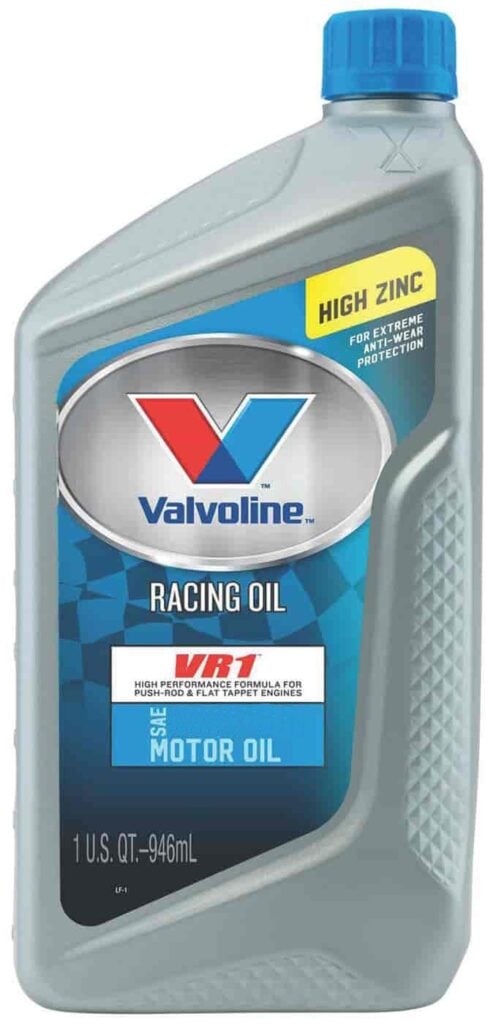
Ford's Recommendations for the F-150
For older F-150s from the 80s or 90s, Ford typically recommended conventional motor oils with viscosity grades of 5W-20 or 5W-30, which were better suited for the larger, less efficient engines of the time.
Fast forward to the present, and the Blue Oval recommends synthetic blends, depending on your Ford F150 engine, with 5W-20 or 5W-30 grades still being the most prevalent. For instance, a 2023 F150 with the 3.5L EcoBoost engine takes 5W-30 oil, while an XLT with the base 3.3L takes 5W-20.
No matter what generation your F150 belongs to, disregarding Ford's oil recommendations can lead to increased engine wear, reducing longevity, as discussed earlier.
Ultimately, the best oil for Ford F15 pickup trucks is found by following the manufacturer's guidelines outlined in the owner's manual or displayed on the oil cap.
Choosing Based on Driving Conditions
The environment you drive your F150 in also plays a role in oil selection.
In extreme temperatures, synthetic oils are generally more effective due to their broader operating range, as they typically offer superior mechanical and chemical stability over conventional oils.
This is true for synthetic and conventional oils with the same advertised viscosity grade, as synthetic oils are chemically engineered to better maintain their viscosity under a wider range of temperatures. For instance, if you're frequently driving in environments with extreme heat, like Death Valley, or harsh cold, like Alaska, a full synthetic oil such as 0W-40 can offer consistent protection across these varying conditions.
The protection provided by the oil also depends on the specific F150 engine. Different engines, even within the same model line, can require different oil types due to different internal tolerances and performance characteristics. For example, in a 2023 Ford F150 with the 2.7L EcoBoost engine, you'll need to add 5W-30 oil, while the 3.3L V6 engine takes 5W-20.
For older F-150 models, you'll need to consider the age and condition of the engine. Older engines often have more wear and tear that leads to larger internal clearances, and they may benefit from a slightly heavier oil. For example, a 10W-40 could offer superior protection for high-mileage F-150s, particularly in hotter climates.
That being said, it's important to note that a one-size-fits-all approach does not apply when choosing motor oil. The manufacturer’s recommended viscosity grade is designed to provide optimum performance and protection based on the specific design and operating conditions of the engine. Using a different viscosity oil grade can lead to reduced performance or potential engine damage.
The final advice remains the same: always refer to your F150's owner's manual or consult with a mechanic if you're unsure which Ford F150 oil type to put in your pickup. This approach ensures you get the best performance and longevity out of your Ford F-150, no matter its model year or engine type.
How Often You Should Change Your Oil
Another topic to consider is how often you need to change your F-150's oil. While the old adage says to change your oil every 3,000 miles, advancements in engine and oil technology (better heat resistance, fewer oil impurities, enhanced engine construction, etc.) have extended these intervals.
For modern F-150s, especially those using synthetic oils, Ford suggests an oil change every 7,500 to 10,000 miles under normal driving conditions. However, if you frequently tow heavy loads with your F150, go off-roading, or drive in extreme climates, you should change the oil more frequently, perhaps every 5,000 miles.
Older F-150 models, particularly those dating back to the 1970s, may require more frequent oil changes, around every 3,000 to 5,000 miles. This is due to their use of conventional motor oil and less efficient engines.
It’s also crucial to observe your oil's condition. If your oil becomes dark and dirty, it's a sign that it's losing its effectiveness and needs changing. Note that a significant drop in oil level between changes usually indicates an oil leak, not necessarily the need for an oil change.
Ultimately, the most accurate information for your specific model will be in your owner's manual.
Consider JEGS for All Your Motor Oil Needs
If you've made it this far, you should have a much better idea about which type of motor oil will best suit you and your F150's needs.
While this article provides a comprehensive guide to understanding and selecting the right oil type, viscosity, and grade, your owner's manual should always be your primary reference point. If you're still unsure, consult with a mechanic.
And remember, for all your motor oil needs, consider JEGS, a leading supplier of high-performance auto parts. Have more questions? Contact our team today.

